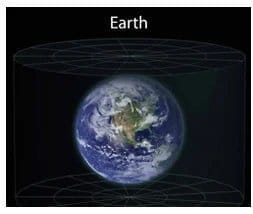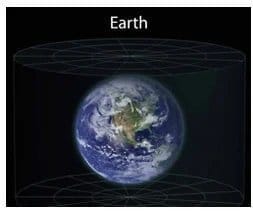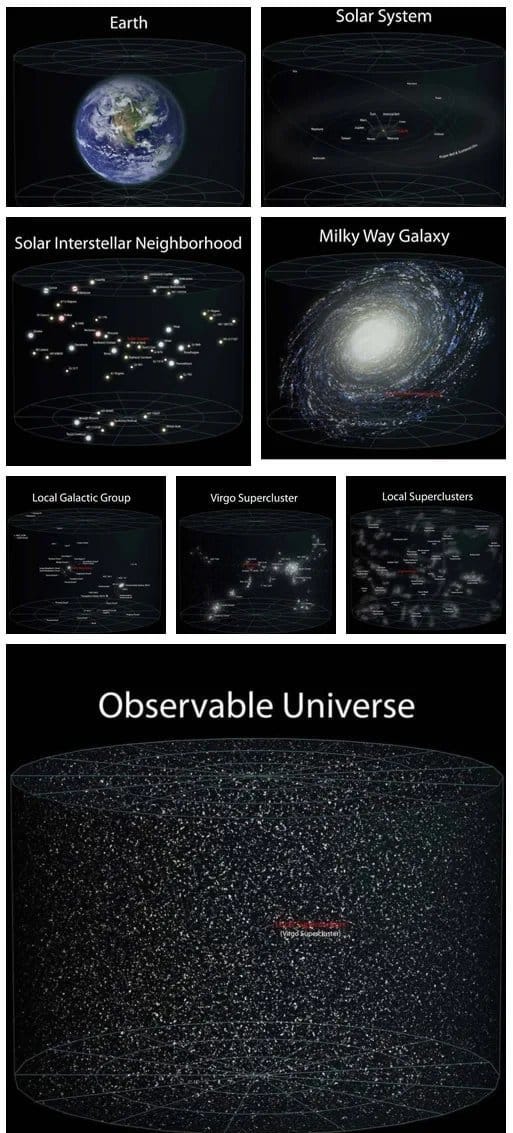The ambient sense of impending doom
Or how to deal with the depressing state of the world
I’ve been largely absent from writing over the past few years. It has something to do with the advice my dad passed on from his mom: if you have nothing nice to say about someone, say nothing at all. But in this case, it’s more like: if you have nothing encouraging, optimistic, and of practical utility to write, write nothing at all.
So I have only written about how fixing the world’s worst problems is entirely practicable and possible; the impediments in the way of fixing these problems; how these impediments are so powerful, and leftists so disorganized and weak, that the world’s children would be fully justified in simply murdering all adults; the absurdity-atrocity that is U.S. foreign policy; the absurdity of critiques of Chomsky’s writings on U.S. government atrocities; and, of course, why god-emperor Trump should be praised by leftists (or, rather, the absurdity that a cretin like Trump proved himself the lesser evil to the Democrats’ greater, genocidaire evil early on).
Summarizing all of these, it is entirely within our species’ technological ability to fix the world’s worst problems: the ecological crisis, the risk of nuclear apocalypse, the U.S. empire (which should be an oxymoron, given true American ideals and values), and its grotesquely brutal global economic system that kills eight 9/11s’ worth of people every day. The problem is ignorance: the number of people who have an understanding of these problems, and the solutions to them, is minuscule. And those of us with such an understanding are disorganized. We need a revolution in the world system, but as Mao pithily put it: if there isn’t a revolutionary party/organization, then there is no possibility of a revolution. Leftists – actual leftists, not báizuŏ (白左, literally “white left”: those who consider themselves leftists, but focus exclusively on objectively less important issues while ignoring the core leftist concerns over the past century or two: anti-capitalism and anti-imperialism) – don’t have a The Party, so our collective impact is less than the sum of our individual efforts.
Speaking for many of us, this is all quite depressing and enervating. Gramsci’s pessimism of the intellect can easily overwhelm the optimism of the will. The fact that “realism of the intellect” = “pessimism of the intellect” has led many of us into impotent nihilism, cynicism, or, more amusingly, intellectual gymnastics. For instance, trying to contort Genocide Joe Biden and his anemic economic policies into FDR and the Green New Deal. (Said policies were nonetheless bigger than anything even contemplated during the neoliberal era – but that is damning by faint praise).
The logical conclusion of the leftist premise is unavoidably saddening. This planet’s experiment with life has produced an absolutely amazing species: it’s eusocial, that is, extremely cooperative, with an egalitarian syndrome, that is, a demand for equality written into its genome, that has mastered nature to eliminate the threat of predators, and minimize the threat of diseases. All life rebels against the second law of thermodynamics… but this species downright urinates on it and throws up two middle fingers as it skips away. Yet very recently, roughly 10,000 years ago, this same species radically changed its means of production from itinerant hunting-gathering to sedentary agriculture, which changed its form of social organization from tribes to kingdoms – and only a few hundred years ago, into nations. These super-organisms have tended to be belligerent and predatory, reaching their nadir in the form of European nations’ colonialism and imperialism. They eventually succeeded at forcibly absorbing the whole world into their form of social organization or relations of production, capitalism. And so now, this incredible species, with so much potential, threatens to kill itself and most other life on earth through the construction of its habitat, its waste products, and its weapons.
This dire fate is entirely avoidable, if only enough members of the species were appropriately informed. But at the top of this species’ hierarchy reside idiots: people who amassed wealth and power by hook or by crook or by luck, and do not want to change the system they now dominate and extract so many benefits from. They may submit their brains to a little bit of information about the looming ecological catastrophe, but it feels icky, even threatening, to learn about that – so they preserve their soothing ignorance instead. Such idiots control the means of mass communication, the media, the technology this species developed to spread information at lightning speed all over the world. So the media, instead of informing people and mobilizing them to avoid catastrophe, is misused to play the same role that genes (implausibly) played in Idiocracy. Mere ignorance remains the key impediment forcing us into fast or slow annihilation, and keeping us from maximizing our well-being and potential, exploring the universe forever.
Hence the ambient sense of impending doom starts to smother us. And worse, it can easily sap us of the motivation to work towards averting doom. What’s the point, when the odds are so stacked against us? If there is anyone who has constructed a leftist worldview but who doesn’t feel an ambient sense of impending doom – I’ll have what she’s having!
This creates a (negative) positive feedback loop: a leftist worldview, given the state of the world, is depressing, and that in itself makes a leftist worldview less likely to spread to, or be constructed by, many brains. So much of social/political psychology can be reduced to: ideas/beliefs that make people feel good are more likely to spread to, or be generated by and fixed into, brains; and ideas/beliefs that make people feel bad are less likely to spread to, or be generated by and fixed into, brains. That’s not rational, but those are the brains we’ve got.
A century ago, things were quite different. The ecological crisis was far less acute, and communism/socialism/Marxism offered good feelings. That is, in this leftist worldview, the inevitable trajectory of human society was a form of social organization in which the well-being and potential of everyone was maximized, domination nonexistent, and one could fish in the morning, do construction in the afternoon, and be a critic after dinner. There was no question but that communism would eventually prevail. The only question was when, and joining the local The Party and following orders would hasten its arrival. There was an ambient sense of impending utopia, even for those in Asia and Africa who were still directly under the boot of empire.
Just this psychological attribute of last century’s leftist worldview – that adopting it tended to give people good feelings rather than bad – doubtless helped it spread as it did. Like wildfire. Yet the equivalent psychological attribute of today’s leftist worldview is that it tends to give people bad rather than good feelings. And that in itself makes it less likely to spread. “Hi! Can I interest you in an accurate understanding of how the world works? Yes? Great! How about if it makes you depressed? … Hello? Where did you go?”
So I went back to last century, to try to find some inspiration. And I did.
When Finland’s ambassador presented his credentials to Mao in 1955, their conversation turned to the nuclear extermination with which the U.S. government had threatened China. Mao said:
Even if the U.S. atom bombs were so powerful that, when dropped on China, they would make a hole right through the earth, or even blow it up…
He sounds very contemporary, what with the recently re-elevated threat of nuclear annihilation! Where’s he going with this depressing line of thought?
…that would hardly mean anything to the universe as a whole, though it might be a major event for the solar system.
When I think of the universe, I think of how sad it is that our species will most likely squander its opportunity to explore it and possibly meet other intelligent species. But Mao had a point: from the perspective of the universe, with its trillions of planets, billions of them likely having life, earth and homo sapiens are hardly a footnote in a trillion-page book.
And there’s no chance of actually blowing up earth – as opposed to making it as lifeless as Venus, kowtowing to the second law of thermodynamics – so even from the solar system’s perspective, a fast (nukes) or slow (ecological collapse) planetary murder-suicide wouldn’t be a major event, just a change in how the planet looks from space, if you looked closely enough.
This made me think of what always seemed (to my Western-raised mind) like a contradiction in some Eastern strains of thought: that we should cultivate non-attachment and compassion. How to be compassionate without being attached to the object of one’s compassion? In this case, leftists are motivated by compassion toward our species. We have compassion for our fellow humans because we know what it is to suffer, and we want to eliminate suffering. As Che put it, “the true revolutionary is guided by a great feeling of love.” We decry and mock our species’ flaws, especially those individuals personifying said flaws; but we only do so because we understand our species’ potential, and are disappointed when it isn’t reached. Scratch a cynic – a leftist taking refuge – and a disappointed idealist bleeds.
But we can be compassionate and non-attached, in the sense of not allowing our desire for an end to suffering cause us to suffer because we lack the means to that end.
Looking at the earth from a universal perspective can help. We are just one species on one tiny planet in one galaxy’s backwater bumblefuck region. There are likely many billions of planets with intelligent life out there. Many of these species are currently murder-suiciding themselves and their planetary co-inhabitants – just like us! – as they overexploit their planets’ energy sources and discover uranium 235. But on other planets, species are managing to make the transition to advanced technology without self-destruction, and enjoying a better life.
And we might… maybe, just yet… be one of them. But if we are emotionally attached to that outcome, our brains constantly cogitating about the scale of the threats we face, the needless pain so many are experiencing, and the seeming impossibility of our task, then we are easily overwhelmed. The candle that burns too brightly goes out quickly.
Arundhati Roy was being visited by a journalist in Bombay. They were in a taxi stuck in traffic (because Bombay), and the journalist noticed Roy purposefully looking off into the distance as the omnipresent stream of desperately poor and suffering people flowed around their car, some gently knocking on the window, holding babies or displaying a crippled or missing limb, begging. The journalist – from a Western country – found this anamolous: the great leftist Arundhati Roy, whose compassion for the poor and suffering is seeped into every page of her writing, ignoring the poor and suffering? When asked, Roy explained: in India, as in most parts of the world (and ever more so in rich countries too), you are constantly surrounded by heart-wrenchingly pitiable human suffering. If you stop to immerse yourself in all or even some of that suffering, you will quickly be overwhelmed, burn out, or simply die of a broken heart. (Like that Dinosaur Jr. song, if you “feel the pain of everyone”, then you’ll soon “feel nothing”.) She realized that simply to survive as a leftist in our present world, one must keep a certain emotional distance, while still being driven by compassion.
Perhaps to live with an optimistic will (acting as if one were optimistic) requires some changes to a pessimistic intellect. Once you’ve grasped the state of evil in the world – its causes, structures, institutions, perpetrators, victims – don’t wallow in it. If an acquaintance is unaware of the evils of the U.S. empire, or of the Israeli or Indian governments, or of international financial institutions and their guiding ideology, etc., etc., then educate them. But for the already educated, don’t wallow. Plan instead.
So maybe you are on the Titanic an hour before impact. Still, plan a mutiny to wrest control of the ship from the captain. That doesn’t work? You only have cans-and-string to the captain’s PA system with speakers all over the ship? You only have a few comrades in steerage, compared to a small army of guards? OK, then plan to save as many people as possible after impact. You’re roughed up by guards for even inspecting the lifeboats to design an evacuation route? OK, then plan to steal some champagne from the wine vault, have sex in the backseat of someone’s car, and at least live it up as the ship goes down. Wallowing at best ruins a good time, and at worst, prevents life-saving planning.
Remain unattached, in the sense of knowing that one is just a single ant in a massive colony, whose individual efforts are irrelevant in themselves; but can in the aggregate move mountains. Acknowledge the dismaying weakness of what is now a pre-larval global Left; but instead of endless, emotionally attached cogitation about it, plan to change it. Initial steps will seem so small as to be inconsequential: joining a local organization*, trying to reorient it in a better direction, or founding one; sharing a book that educated you with acquaintances; informing strangers on the internet; etc. But so too are the efforts of an individual ant inconsequential – there are no superants, or superhumans – while in the aggregate, these individual actions build underground metropolises. And in our case, they just might build a better world, one that can survive past this century.
And if we fail? So what, we’re a speck in a universe full of countless species that did manage to civilize themselves. Our species might inspire a salutary documentary, or at least one page in a textbook, for other species’ children to learn from our mistakes. And at least we fight! If we’re lucky, we turn the experience of swirling around the toilet bowl into a waterslide. And if we’re really lucky, we don’t give up and continue to educate and organize others, we just might avoid getting flushed.
Just don’t be attached to that outcome – act as if your actions will produce it, but when it comes to the intellect, try to keep in mind our place in the universe.
- Peter
P.S.
This advice from Einstein to a friend living in Germany in 1933 may also help:
Read no newspapers, try to find a few friends who think as you do, read the wonderful writers of earlier times, Kant, Goethe, Lessing, and the classics of other lands, and enjoy the natural beauties of Munich’s surroundings. Make believe all the time that you are living, so to speak, on Mars among alien creatures and blot out any deeper interest in the actions of those creatures. Make friends with a few animals. Then you will become a cheerful man once more and nothing will be able to trouble you.
* If you’re in the U.S., join DSA or PSL or SA, in Europe, DiEM25, whichever; focus on outreach and recruitment, and look to merge merge merge like you’re a monopoly capitalist, disregarding differences of opinion that are inconsequential compared to the differences of opinion between you and the people who own and rule the world. Hell, keep even the idea of a hostile takeover of either right wing of the Property Party – Repub and Dem – in mind!







Exactly. And the energy to put it back together needs to be non-CO2 emitting. My bet is the tech bros are going to blast the atmosphere with sulfur and other geo engineering “solutions” and mess thing up much worse.